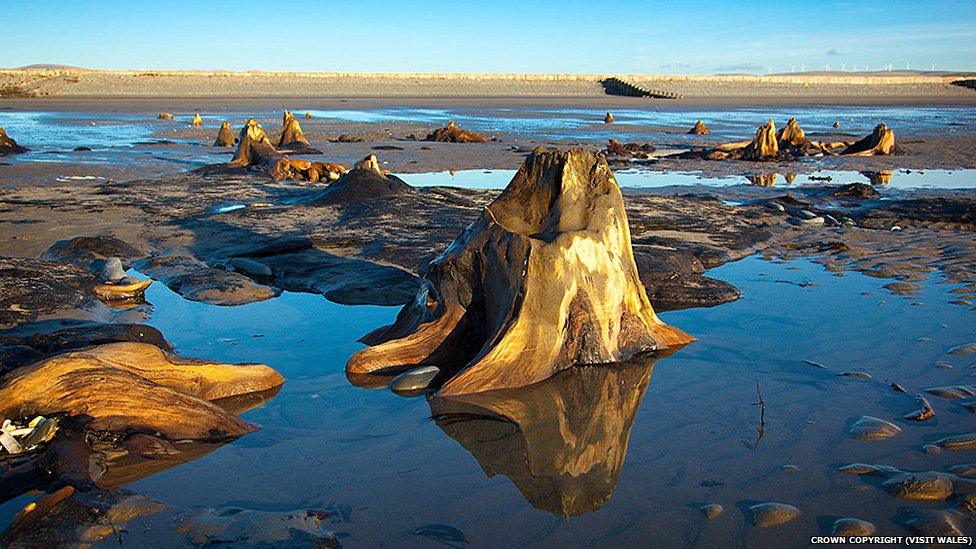NRW 'did not have wool pulled over eyes' over £39m timber deal
- Published
NRW chief executive Emyr Roberts was asked if the firm had built a promised saw line
The chief executive of Natural Resources Wales has denied the organisation had the "wool pulled over our eyes" by a sawmill operator given a 10 year timber contract that was criticised by an audit.
As part of the deal, the firm was meant to have built a saw line by Friday.
Despite questioning by AMs, Emyr Roberts did not give a clear answer as to whether that has happened.
He said the deal - an effort to deal with diseased larch - was a success.
Although he was happy with the decision, Mr Roberts admitted that its documentation was "not good", that there should have been more discussion with Welsh Government and that the executive board could have had a greater role in scrutinising the deal.
A member of the committee, Lee Waters, later dubbed the answers "unconvincing".
In 2014 a company was awarded a £39m deal to purchased both spruce and larch timber - the latter of which was forests where a fungus disease causing extensive damage - Phytophthora ramorum - was present.
No other company was given the opportunity to bid for the contracts.
As part of that deal the company was meant to have built a new saw line by 31 March 2016. That deadline was missed and extended by 12 months to March 2017.
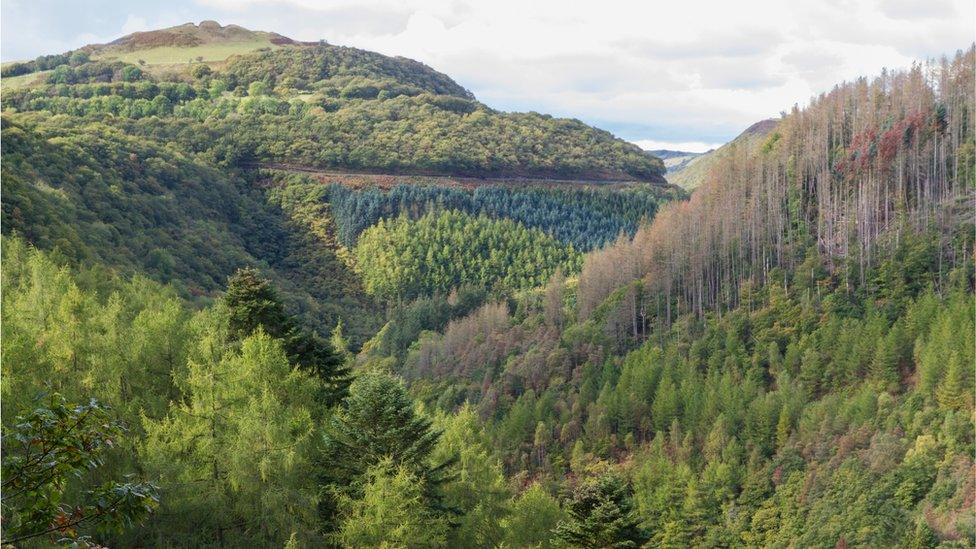
There had been a "real crisis" at the time of the contract award
During a session of the assembly's Public Accounts Committee, Labour Llanelli AM Lee Waters asked Mr Roberts if the line had been built.
"We are in on going discussions with the operator on that," said Mr Roberts.
Mr Waters pressed him again, pointing out that the date of the committee's meeting was 28 March. Mr Roberts repeated the answer, adding later it was a "commercial matter".
Mr Waters asked if Mr Roberts felt the firm "pulled the wool over your eyes in making you feel that the only way they were going to deal with this crisis was by investing in new expensive capital equipment".
Mr Roberts replied with a denial: "No, I don't think they have pulled the wool over our eyes at all."
"At the time, there was no market for larch," he said, claiming timber merchants at the time "would not touch larch, let alone diseased larch".
"What the operator did and the rest of the industry did was actually build up that market."
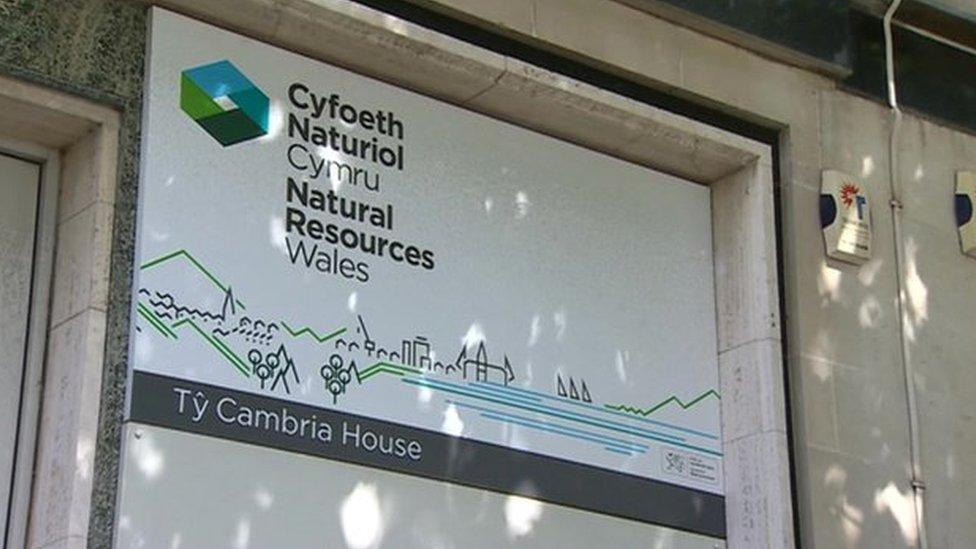
Natural Resources Wales is funded by the Welsh Government but run at arms length
Mr Roberts said there was a "real crisis on our hands at the time" and there had been a danger the timber market would collapse.
"The situation today was a lot more stable than it was in 2013-14. Our policy, our decisions on these contracts together with the overarching policy in treating larch disease has been successful," he said.
"It's stopped the spread, but it's meant the timber market has been able to carry on as well."
A report by auditor general Huw Vaughan Thomas released earlier in March expressed doubt over whether the decision met state aid rules and said the decision-making process was not transparent.
In a qualification to the body's accounts he said he was unable to satisfy himself on whether the decision to make the deal was lawful.
NRW disputed the auditor's findings on state aid and had said it strongly believed the contracts were lawful.
Neither NRW or the auditors have identified the company involved.
'Serious'
Following the meeting Mr Waters said the answers given by the chief executive "were not satisfactory" and that the evidence was "unconvincing".
He said it was a "serious issue which has been badly handled". Mr Waters said it was clear from the evidence "with two days to go before the end of March the saw mill line has not been installed by this company".
"I think the whole committee felt that the performance was complacent and this was a sufficiently grave situation for the auditor general to qualify the accounts, which rarely happens," he told BBC Wales.
"I think the committee will be referring this to the full assembly to draw this to their attention," he said.
- Published15 March 2017
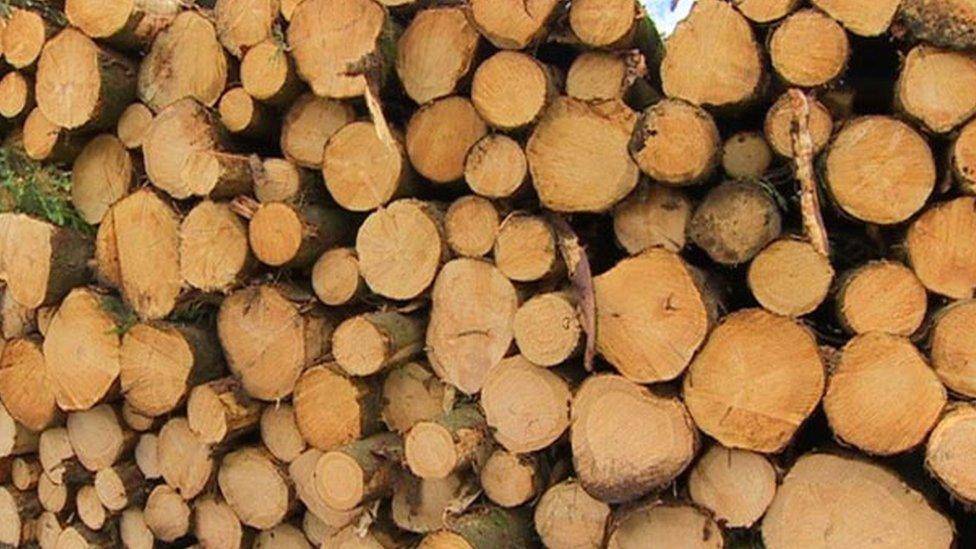
- Published21 June 2016

- Published15 June 2016
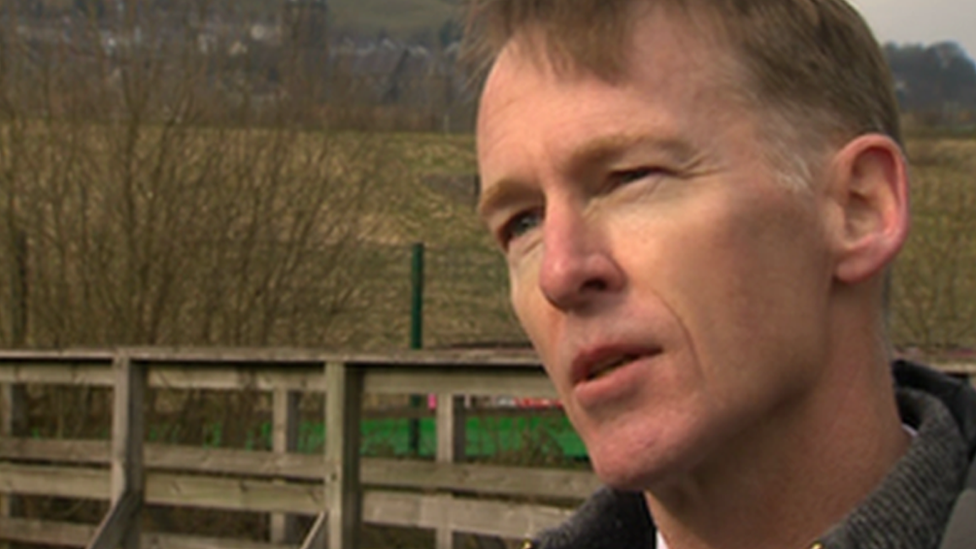
- Published28 April 2015
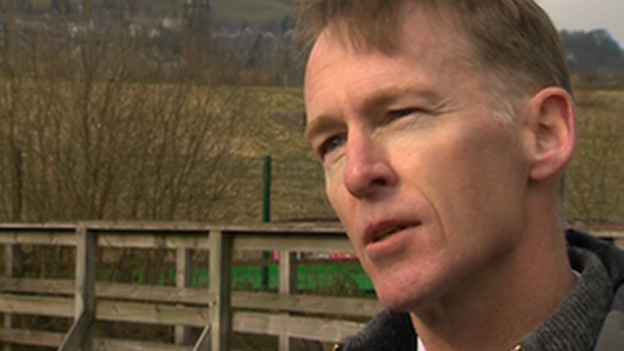
- Published1 April 2013
